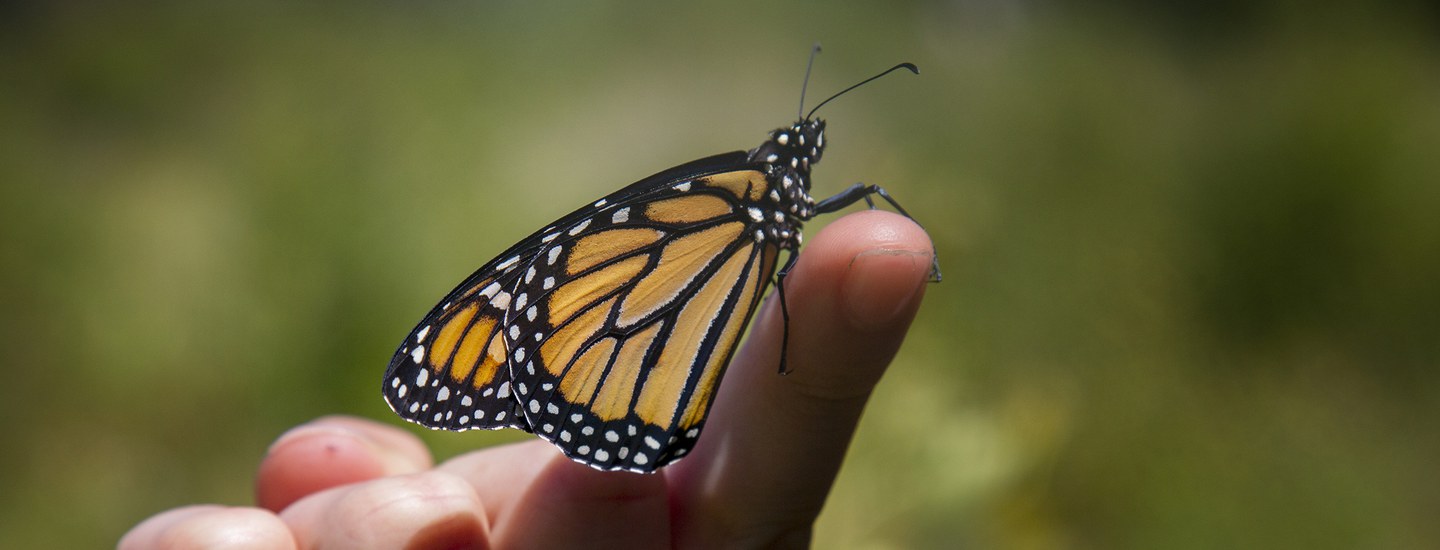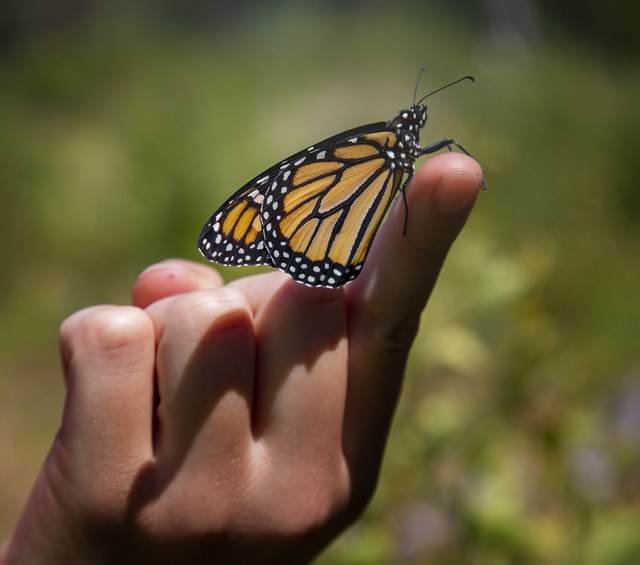The Western monarch butterfly—that iconic flutter of orange and black which the Land Trust works to protect habitat for throughout Central Oregon—needs our help. Why?
Western monarchs overwinter along the coast of California where, each year, scientists complete the Western Monarch Thanksgiving Count. This year's count occurred between November 14 - December 6. With 95% of its results tabulated, the count had a staggeringly low total of 1,800 butterflies spotted. Previous Thanksgiving counts had totals of around 29,000 in 2019, 28,000 in 2018, and 192,000 in 2017. This extreme decline is believed to have been partially caused by this year's wildfires, as well as habitat loss, pesticide use, and climate change.
In addition, the US Fish and Wildlife Service (USFW) recently completed their assessment of the monarch butterfly's status and potential protections under the Endangered Species Act. The assessment factored in both the Eastern and Western monarch, since there is no genetic difference. The Eastern monarch, while also experiencing population declines, has not dropped at a similar rate to the Western monarch. The USFW news release stated that they have "found that adding the monarch butterfly to the list of threatened and endangered species is warranted but precluded by work on higher-priority listing actions." Moving forward, the USFW will review and confirm the monarch's priority level each year with a plan to propose listing in 2024, if it is still needed.
While both the Endangered Species Act assessment and overwintering population numbers are somber news, hope is not lost! We can all do our part to help give the Western monarch the best chance possible to survive.
What can you do to help?
There are several ways you can help right here in Central Oregon. Here are just a few options:
- Plant native milkweed and other pollinator-friendly native plants. Native plants are adapted to our climate, which is just one of the reasons to plant them. Milkweed is especially important, as it's the only type of plant that monarchs lay their eggs on, and the only plant that monarch caterpillars eat. When planting milkweed in our area, please be sure it is one of our two native milkweeds—showy or narrowleaf. Even better, plant both kinds!
- Stop using pesticides. Butterflies (and other pollinators) are incredibly vulnerable to pesticides, which can harm or even kill them. In addition, if plant nurseries use pesticides, these chemicals often remain in the leaves and nectar of plants, affecting butterflies and other pollinators long after you've taken your plant home.
- Get your neighbors, school, church, etc. to plant native milkweed and other pollinator-friendly plants. We can only help monarchs if we work together and provide habitat along the monarch's entire migration path.
- Join the Deschutes Land Trust! We are committed to doing our part to help Western monarch butterflies. This includes planting native milkweed and other native wildflowers at our Preserves and throughout Central Oregon, pulling invasive weeds, keeping an eye out for monarch eggs, and partnering with other groups and businesses to help the monarch. Support the Land Trust's work today!
- Become a community scientist. Get involved with monarch advocate groups to help track, teach, and advocate for our monarchs! Some groups to look into include the Monarch Advocates of Central Oregon, Western Monarch Advocates, Xerces Society, and Monarch Joint Venture.
Learn more:
- Interested in planting native showy milkweed in Central Oregon? We'll send you seeds!
- The Magic of Milkweed
- Pollinator Plants to Grow
- How to Create a Butterfly Garden
- USFW Monarch Butterfly Assessment


